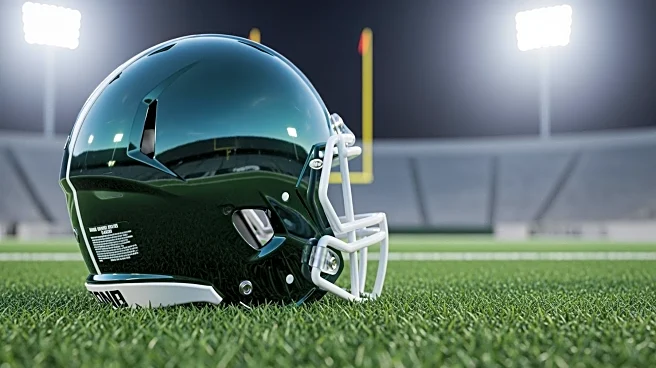Rapid Read • 9 min read
The NCAA has released a report detailing a contentious relationship between former Michigan Wolverines head coach Jim Harbaugh and the university's compliance department. The report, which spans 74 pages, outlines a lack of oversight and control within the football program, leading to significant penalties for Michigan. Harbaugh, who has since moved on to coach the Los Angeles Chargers in the NFL, was found to have violated Level I rules, resulting in a 10-year show-cause penalty. The NCAA's investigation revealed that Harbaugh and his staff often disregarded compliance efforts, viewing them as obstacles. This friction was exacerbated by Connor Stalions' impermissible scouting activities, which contributed to Michigan's extended probation and financial penalties. The report also highlighted a culture within the football program that resisted compliance efforts, with staff members expressing disdain for the compliance office.
AD
The findings of the NCAA report have significant implications for college athletics, particularly in terms of compliance and governance. The penalties imposed on Michigan, including financial fines and probation, underscore the NCAA's commitment to enforcing its rules. This situation highlights the challenges universities face in balancing competitive success with adherence to regulations. The report's revelations could lead to increased scrutiny of compliance practices across college sports programs, potentially prompting reforms to ensure better oversight. For Michigan, the sanctions could impact its recruiting and competitive standing in the NCAA, while Harbaugh's move to the NFL suggests a shift in his career trajectory away from college football.
Michigan plans to appeal the NCAA's ruling, which could lead to further legal and administrative proceedings. The university's new head coach, Sherrone Moore, is expected to implement a different approach to compliance, as noted in the NCAA report. Moore's efforts to instill a culture of compliance may influence the outcome of the appeal and the future direction of the program. Additionally, the NCAA's findings may prompt other universities to reassess their compliance strategies to avoid similar issues. The broader college athletics community will likely monitor the situation closely, as it may set precedents for handling compliance violations in the future.
The NCAA report raises ethical questions about the culture within college sports programs and the pressures to succeed at any cost. The described tensions between the football program and compliance staff reflect broader challenges in maintaining integrity while pursuing competitive success. This case may lead to discussions about the role of compliance in college athletics and the need for stronger governance structures to prevent similar issues. The long-term impact on Michigan's reputation and its ability to attract top talent could also be a concern, as the program works to rebuild trust and credibility.
AD
More Stories You Might Enjoy











